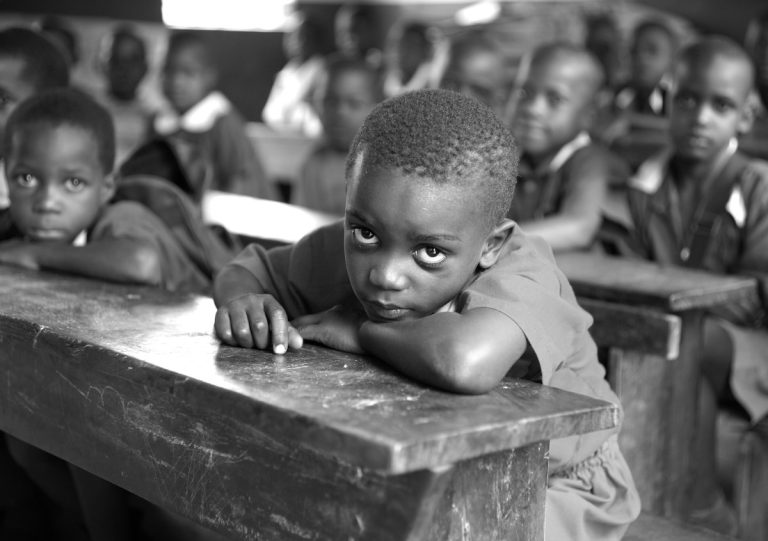
European colonialism methodically extracted wealth from Africa until the system collapsed last century, when it was replaced by climate colonialism, which stifled the economic development the continent desperately needed. [emphasis, links added]
The highly politicized climate industry complex enables Western governments and international institutions such as the United Nations to exert soft power over the energy policies of poorer countries.
Advancing a green agenda and providing seemingly irresistible funding and technical assistance in the name of saving humanity from a fabricated climate emergency, Colonists insisted on replacing fossil fuels with unreliable and expensive wind and solar energy.
Yet Africans have relatively high mortality and morbidity rates — one of the poorest people in the world — It can only be alleviated by demonizing coal, oil, and natural gas energy.
This man-made energy gap is the difference between life and death, hope and despair. This is a harmful intrusion into energy markets that will shorten lifespans, stifle newborn cries, and create barriers to progress.
Africa faces energy poverty
By 2024, more than 600 million Africans will still have no access to electricity. This is unreasonable. In sub-Saharan Africa, only 28% of health centers have reliable electricity.
More than 900 million people use traditional biomass such as wood and animal dung for cooking, and inhale toxic fumes that claim the lives of more than 600,000 Africans every year. For the majority of the population, clean water remains a luxury.
As parts of Asia show, Over time, these problems can be alleviated through heavy investment in fossil fuels.
Coal and natural gas can provide affordable and reliable electricity, and natural gas can immediately reduce deaths caused by pollution from dirty cooking fuels.
Consider that charging an electric car overnight in Europe consumes as much electricity as an entire African village for a week.
Such a huge gap is not just about numbers. They represent the front lines in the daily struggle for survival of Africa's poor.
Against this backdrop of light – or rather darkness – nations find themselves caught up in a global madness, their potential extinguished like a fire without oxygen, for lack of upward mobility suffocated by the need for fuel.
The foreign-funded campaign against fossil fuels, cloaked in the language of climate alarmism, is blocking the development paths that Western countries themselves have taken on the road to prosperity.
A wave of development capital transfers
For decades, international financial institutions and Western donors have viewed energy access as a cornerstone of Africa's development. Many of these projects take advantage of Africa's abundant fossil fuel resources.
But things have changed.
The African Development Bank announced in 2019 that it would no longer provide financing for coal projects. In 2021, it went a step further and imposed strict restrictions on oil and gas investment. The World Bank is not far behind.
Now, even African efforts to revitalize the oil and gas industry at home are being opposed by paid campaigners from Europe.
South Africa's Africa Energy Week events have faced backlash, with European-funded protesters turning up at the African Energy Chamber's Johannesburg offices.
“Some protesters from the poorest towns don't even know why they are here because they only pledged $5 and a meal to attend.” said NJ Ayuk, executive chairman of the chamber. “Africans deserve better and not be used for foreign agendas.
“Unfortunately, climate panic and scaremongering persists and is targeting Africa. In our view, the world’s green agenda ignores Africa – or at least our unique needs, priorities and challenges,“Mr. Ayuk said.
Africa's growth should be nurtured, not destroyed
When Western activists block Africa's development in an effort to save the planet, they are increasing the continent's vulnerability to the elements.
It is a well-known fact that wealthy societies are much more resilient to environmental shocks and natural disasters such as drought and plague.
The challenges facing Africa are huge, but not insurmountable. The right policies and investments can achieve universal energy access, drive economic growth and build prosperous societies.
However, all of this will remain out of reach as long as green policies continue to impede sensible energy development. An ill-informed, short-sighted crusade threatened to bury African aspirations in the darkness the crusaders claimed to dispel.
Across the sun-baked earth and misty forests echoes one question: Can Africans be allowed to flip the switch on progress or be confined to the shadows of others’ destructive obsessions.
As a leader in the fight against neocolonialism, Mr Ayuk said, “Africans must produce every drop of hydrocarbons we can find to improve the lives of African people and meet global energy security needs.”
He's right.
Popular photo on Unsplash by Bill Wegener
Read more in The Washington Times
